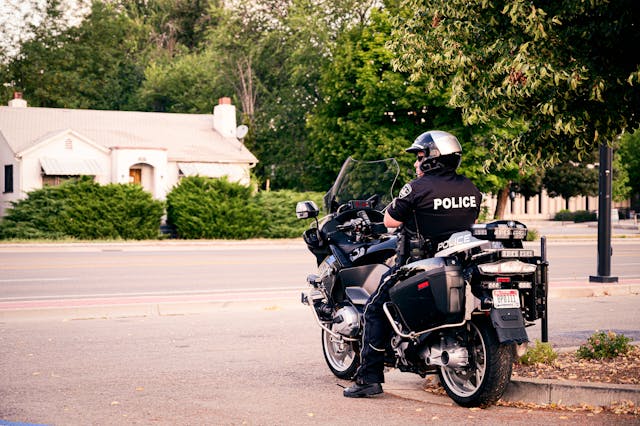
Why are the police called cops? Police officers are called cops because “to cop” meant to arrest someone.
There are many expressions used to refer to the police in English speaking countries. Probably the most famous expression is cop. It is so common that many police officers even refer to themselves as cops or coppers, and there is a famous TV show in the US called “cops”. Children grew up playing the game “cops and robbers”. So, where does cop come from?
There are several theories as to why police are called cops. One is that their badges were made of copper. This is possible, but the expression seems to predate the use of copper badges. Police badges today are made of brass alloys and they differ slightly by police force. In the early days of policing, badges were basically made of whatever metal was available. Some were tin, some were copper, some were silver (if people could afford it), and Tiffany’s even made a gold and platinum badge for the Police Commissioner of New York City. However, not enough of the badges used were exclusively copper for this to be the reason for cop.
Another theory is that it came from the copper buttons that the police wore on their uniforms, but this is also unlikely for the same reason as the badges. The police weren’t standardized and there was no one button. Police forces used whatever metals were available for the buttons. There were some copper buttons, but there were also brass buttons, and nickel buttons. This is unlikely to be the reason.
A third theory is that cop is actually COP and stands for Constable On Patrol. This is also pretty unlikely because there are very few words in the English language that have been made from acronyms, and all of them are recent creations, such as SCUBA, RADAR, and LASER. For cop to have come from an acronym is very unlikely.
So, where did cop come from? The most likely theory is that it comes from the verb “to cop”, which meant to arrest someone. It either came from the Latin “capere”, which meant “to take”, and then in to English via French. Or it came from the Dutch “kapen”, which had the same meaning. Wherever it came from, it ended up as “cop”. You can still see it in the expression, “it’s a fair cop”.
Cop became a noun from the verb and was used to refer to the people who did the copping in 1844 in the UK. And then “er” was added to the verb to make “copper” to mean a person who cops people. The word grew in popularity with the criminal community from then on. It was a very derogatory form of expression for the police and the police obviously didn’t like it, which only served to make it more popular. And today the police even use the word themselves.
There are several other expressions for the police as well. In the UK, they are sometimes called bobbies. This comes from the founder of the police force in the UK, Robert Peel. Robert Peel set up the world’s first organized police force in 1829 and they were called London’s Metropolitan Police. The rest of the UK would have to wait. The policemen wore a visible uniform and they were called “Bobbies” after Robert or “Peelers” after Peel. These names have stuck.
In the US, the police are sometimes called 5-0. This is lifted directly from the TV show Hawaii Five-0. It is supposed to refer to Hawaii being the fiftieth state of the American Union, but police in Hawaii don’t actually use 5-0.
Then there is the expression “blues and twos”, which might be mainly used in the UK. This comes from the blue color of the flashing lights and the two-tone siren that police cars used to use. These days sirens are much different because it was discovered that it was very difficult to work out where a police car was coming from in a built up area if it only had a two-tone siren.
The police are also sometimes called the fuzz. This may also be more in the UK than the US. There is no one explanation for this either. It could come from the short fuzzy haircuts they have to have. It could be a joke mispronouncing of “force”. It could come from the fuzzy sound of the static on police radios. And it could come from the slightly fuzzy hats that the police in the UK used to wear. There are many interesting expressions for the police and this is what I learned today.
Photo by Brett Sayles: https://www.pexels.com/photo/man-riding-on-motorcycle-2902372/
Sources
https://www.etymonline.com/word/constable
https://garmonttactical.com/post/why-are-police-officers-called-cops-.html
https://www.etymonline.com/word/cop
https://www.kellybadges.co.uk/43-uniform-buttons-police-and-prison-uniform-buttons
https://www.smithwarren.com/learning-center/are-police-badges-made-metal
https://owlbadges.com/police-badge-history
http://orvillejenkins.com/words/cops.html
https://www.snopes.com/fact-check/cop-talk
https://www.history.com/news/why-are-british-police-officers-called-bobbies
https://en.wiktionary.org/wiki/blues_and_twos
https://www.straightdope.com/21343341/why-are-the-police-called-cops-pigs-or-the-fuzz
